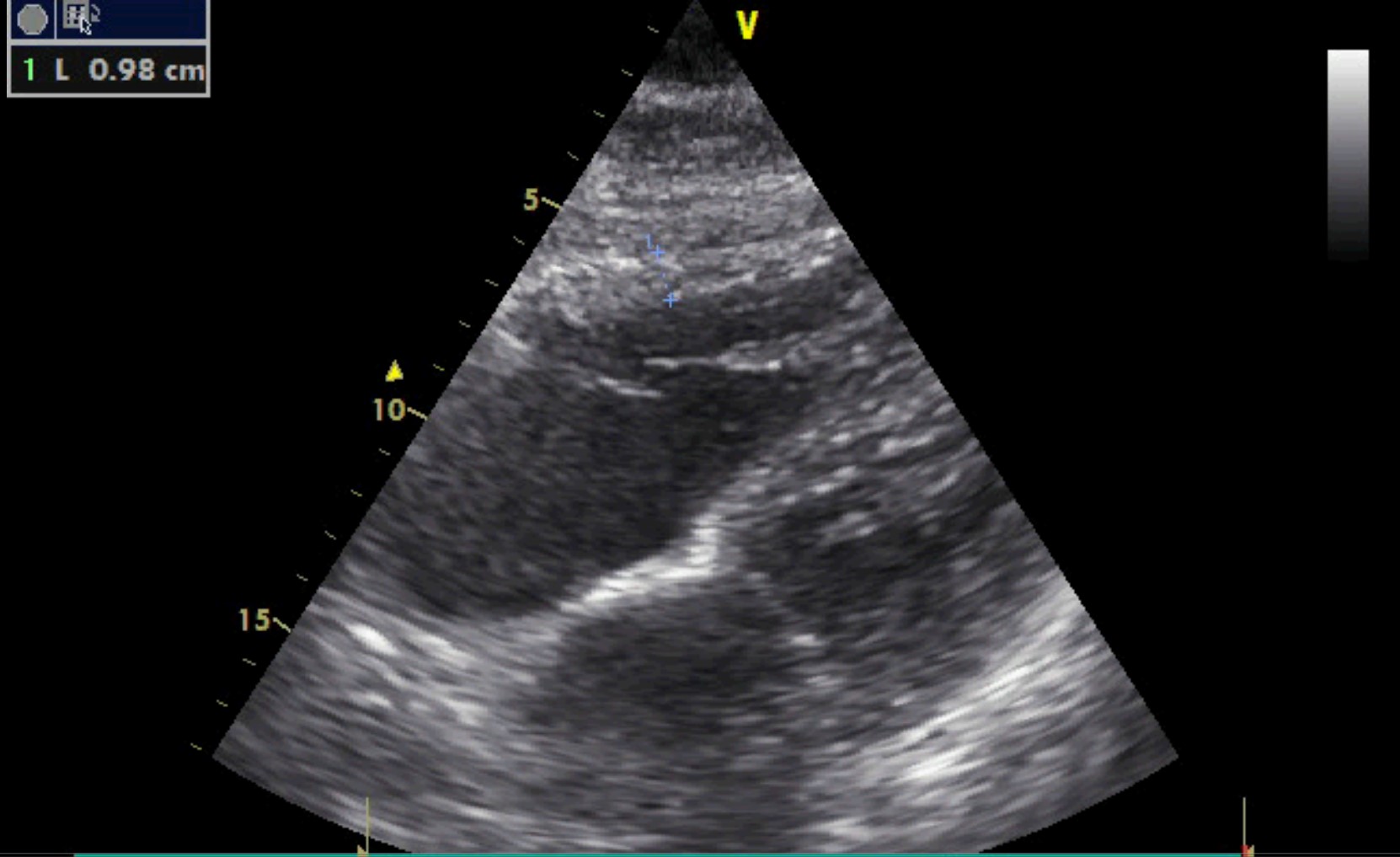
Pulmonary embolism should always be considered in the differential diagnosis of dyspnea and circulatory failure. Based on echocardiography, it is often neither possible to exclude nor to confirm this diagnosis. Echocardiography finding can be concluded as positive only if the afterload of the right ventricle is sufficient to overload right ventricle significantly. If the overload is of acute origin, the ventricle dilates and fails to pump blood in sufficient amount into the circulatory system. If the overload is of chronic origin, the ventricle dilates and develops hypertrophy. If the right ventricle is hypertrophic with sufficient amount of heart muscle, then it is not possible to assess the degree by which the acute cause contributes to ventricular dilation (the case of a patient suffering from a chronic overload of the right side of the heart and acute pulmonary embolism at the same time).
In this case, echocardiography is not sufficient in the diagnosis of pulmonary embolism unless so-called thrombus-in-transit in right heart, inferior vena cava or pulmonary artery is found.
Thus, the ability to diagnose right ventricular hypertrophy is important:
